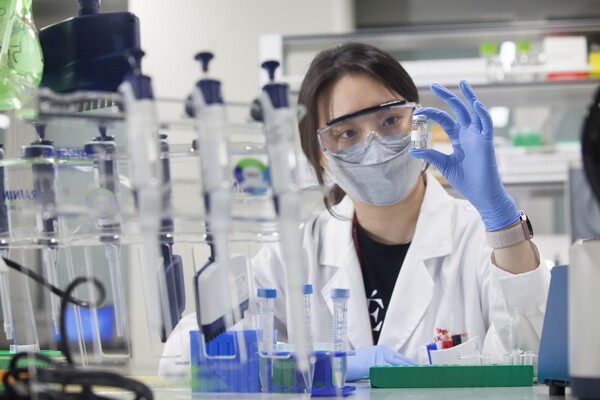SK bioscience said Thursday it received approval from Australia’s Human Research Ethics Committee (HREC) to initiate a phase 1/2 clinical trial for GBP560, its mRNA-based Japanese encephalitis vaccine candidate.
The trials, set to begin in February 2025, will assess the vaccine’s safety and immunogenicity, with interim results anticipated by 2026.

The GBP560 vaccine is part of SK bioscience’s efforts to establish an mRNA platform by developing vaccines for Japanese encephalitis and Lassa fever. These vaccines are designed as adaptable prototypes to address potential future pandemics, aligning with the global “100 Days Mission” to accelerate vaccine development within approximately three months.
SK bioscience is collaborating with the Coalition for Epidemic Preparedness Innovations (CEPI), which has provided $40 million in initial funding since 2022. An additional $100 million could be allocated for late-stage trials. The agreement includes commitments to ensure equitable vaccine access, particularly for low- and middle-income countries.
Preclinical studies for GBP560, initiated in December 2023, demonstrated robust safety and immunogenicity. The phase 1/2 trials will involve 402 healthy participants in Australia. The first phase will evaluate low, medium, and high doses of the vaccine, while the second phase will further assess its safety and immune response compared to a control group.
SK bioscience CEO Ahn Jae-yong highlighted the importance of the mRNA platform, stating that it provides rapid production capabilities essential for pandemic preparedness. The platform, first commercialized during the Covid-19 pandemic, uses genetic sequences to expedite vaccine manufacturing.
Kent Kester, CEPI’s Executive Director of Vaccine Research and Development, emphasized mRNA technology’s role in building a “library of vaccine candidates” for future infectious disease threats. This collaboration builds on SK bioscience’s expertise in advanced vaccine platforms, including a CEPI-supported pan-coronavirus vaccine.
The global mRNA pharmaceutical market is projected to grow at an annual rate of 17 percent, reaching $58.9 billion by 2033, according to Nova One Advisor. SK bioscience said it will continue to expand its mRNA vaccine portfolio, following the development of its Covid-19 vaccine, SKYcovione.
Related articles
- SK bioscience reports sharp Q3 revenue decline due to aggressive investment
- SK bioscience invests $3 mil. to acquire stake in US R&D firm Fina Biosolutions
- Experts gather to advance vaccine development, combat antimicrobial resistance at IVI's vaccinology course
- Korea reports 1st Japanese encephalitis cases of 2024, urges vaccination and prevention measures
- SK bioscience, CEPI to address pandemic preparedness amid rising infectious disease threats
- SK bioscience to get €50 mil. upfront from Sanofi for next-gen pneumococcal vaccine
- Korea, US approve SK bioscience’s phase 3 trial for 21-valent pneumococcal vaccine
- SK bioscience swings to loss in 2024 on R&D spend but bets on IDT Biologika for turnaround
- SK bioscience ships 750,000 flu vaccine doses to Southeast Asia, Latin America
- SK biopharmaceuticals taps 1st female board chair, adds two outside directors
- SK bioscience to test flu shot with immune booster for older adults in phase 1/2 trial

